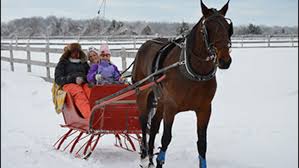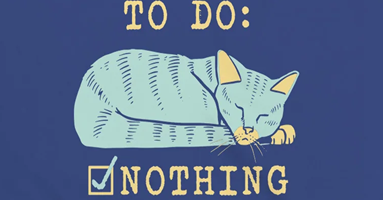
The silent sentry deceptively contrasts against the cold winter sky.
A Minnesota winter is both a threat and a reward.
Two popular songs portray winter with contrary emotions. The Russian band, Krokus, leads into terror: Russian winter, broken hearts/Cold winds in the dark/The beast is loose and kills tonight/Full moon burning bright. Run for your life/Run for your life/Run for your life/Run for your life. The much-overused “Jingle Bells” invites a joyful sleigh ride to a family dinner. I have combined touches of both themes in describing my 200 mile car ride home in the depths of a Minnesota winter.
December 2007: one of the worst Minnesota winter storms with gales and snowfalls of more than 20 inches. As my daughter, Ariel, and I drove in our Subaru to our northern Minnesota home 200 miles to the north, we faced weather warnings that should have convinced us to cancel the trip. The drive was scripted out of a Hogwarts initiation rite of passage for the apprentice wizards. We were leaving St. Paul headed toward a foreign, challenging world.
That day there were nearly a thousand reported accidents and a dozen plus deaths statewide. We saw cars stranded, crashed, rolled over with tires trying to find traction in the air above. Ambulances roamed around us with sirens moaning like cows lost in the snowbanks. The winter’s peculiar optics engaged us with snow tornados, sending their white forms without shadows at our windshield. Driving into the night, the winds exceeded 50 miles per hour which propelled our car into a vicious world of mysterious energy.
Large bulwarks of snow appeared on the road like icy crocodiles whose noses pushed out from the edges of the fields. We had to swerve to miss the sepulcher bodies or we would have flipped into the ditch. These snow amphibians blew across the road with a fantastical sense of power and threat.
Our vision stretched outward to fields covered with ribbons of fog and clumps of blowing snow.
Agitated trees stood like camouflaged soldiers in a white swamp. The trunks were invisible; just the swaying tops of the trees were visible. It looked like lower limbs and tops of trees were moving toward us in the pockets of the storm. I felt as if I was in Elsinore at the overture of a tragedy. Would we get out of here alive?
The skidding traffic magnified the threats to our lives.
Vehicles would come up quickly behind us with their blinding lights, then hit the brakes, and suddenly dovetail across the road to pass. In the most frightening case, a snowmobile headed directly toward us with a shaking light that obscured my vision. Because of the snow flurries, I could only make out a bright object that frightened me with its apocalyptic threatening eye heading toward our car. The light suddenly swerved into the far lane. Startled, I braked and he stopped his threatening snow machine. He paused to stare at me. Then we passed by each other in the night.
My daughter and I arrived safely, though exhausted, at our home. It is just three hours away from the Cities at regular speeds. It took over six hours to reach our destination. Anna, wife and mother, was predictably relieved to see us appear out of the dark.
The next day was the total Minnesota weather denial that there had been any storm the night before. The sun rose in a clear sky and snow covered the ground like a well-made bed. Lack of any wind gave us the opportunity to fly in a Cessna Cherokee 4-seater over a fairytale landscape. Now we know what it means to enter rapture after the storm!
My daughter and I modified the popular song by Joni Mitchell to end our journey:
“We’ve looked at snow from both sides now, From up and down and still somehow
It’s snow’s illusions, we recall. We really don’t know snow at all.”





